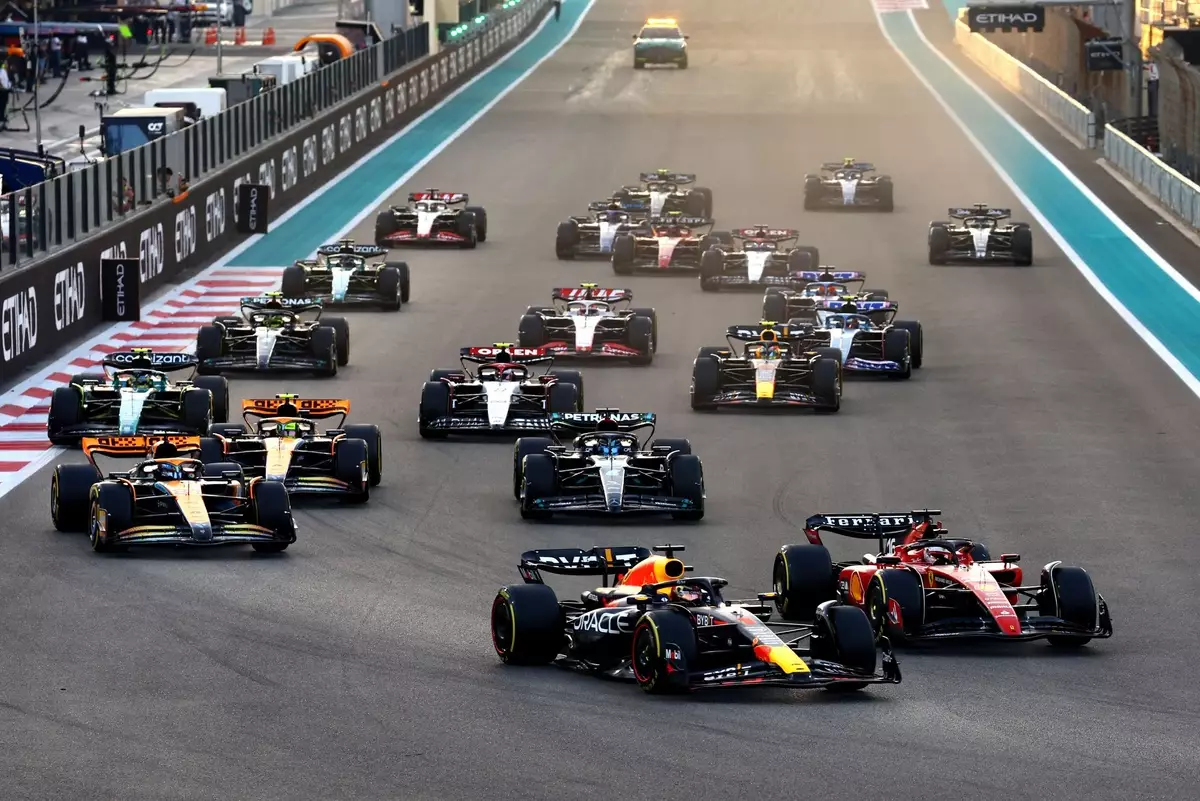Formula 1 has consistently sought innovative ways to enhance the racing experience and nurture young talent in the sport. Recent plans to introduce a rookie sprint race during the post-season test in Abu Dhabi, however, have been cast aside due to logistical difficulties. The decision reflects the ongoing balancing act the sport must perform between ambition and practicality.
The initial proposal for a rookie sprint race was met with considerable enthusiasm. The idea aimed to provide emerging drivers the valuable opportunity to gain experience with current F1 machinery in a competitive environment. Scheduled for the Tuesday following the Abu Dhabi Grand Prix, this event was envisioned as a 10-car sprint race, coupled with a short qualifying session. Stakeholders and teams recognized this as a potential evolution in how rookies integrate into the high-octane world of Formula 1.
However, despite the widespread approval, the intricacies of organizing such an event within a short timeframe proved daunting. The recent F1 Commission meeting underscored the agreement among key figures in the sport that the logistical hurdles involved would be too great to navigate effectively in the limited time left before December. Thus, the decision was made to postpone the concept, signaling a cautious approach to changes in the fast-paced world of Formula 1.
One of the significant lessons to be drawn from the abandonment of the rookie race is the importance of timing and thorough planning in Formula 1. Organizing a new event, even one intended for rookies, requires careful coordination of resources, venues, and personnel. Without sufficient lead time, the prospects for success diminish rapidly.
The F1 Commission has already indicated that discussions regarding this rookie race will continue, with thoughts turned towards the 2025 post-season test as a more feasible avenue for implementation. This postponement allows for a deeper analysis of the concept, focusing on crucial organizational structures that need to be established to ensure a seamless event. Engaging stakeholders once again in this discussion will be vital for creating an opportunity that meets the needs of both teams and rookie drivers alike.
In addition to the rookie race discussions, the F1 Commission has been hard at work revising the technical regulations set to come into effect in 2026. The need for these changes arose from team concerns regarding initial proposals presented earlier in the year. In response, significant changes have been proposed to improve the aerodynamic performance of future cars while simultaneously prioritizing safety.
The collaborative efforts of the FIA and Formula 1 teams reflect an essential aspect of motorsport governance: adaptation. By incorporating feedback and adjusting the regulatory framework, the sport aims to create an environment that not only retains competitive integrity but also fosters rapid innovation in car design and performance capabilities.
Moreover, the F1 Commission has established a robust pre-season testing framework for 2026. Three separate three-day tests are scheduled ahead of the new season to allow teams—especially new entrants like Audi and Red Bull-Ford—to acclimatize to their new power units. This initiative underscores a proactive approach to handling anticipated challenges arising from the shift in engine technology.
The commitment to revising financial and sporting regulations further illustrates Formula 1’s dedication to maintaining a level playing field. With changes focused on achieving competitive balance and financial sustainability, teams are encouraged to develop innovative technologies without the looming pressure of financial pitfalls that can hinder long-term sustainability.
While the cancellation of the rookie sprint race in Abu Dhabi may seem disappointing to many, it reflects Formula 1’s willingness to approach innovation with prudence. The sport’s leadership understands the importance of methodical planning while recognizing the potential pitfalls of hurried implementation. By prioritizing thoughtful discussion and collaboration among stakeholders, Formula 1 sets itself up for future success as it endeavors to balance excitement, technical evolution, and the nurturing of new talent in the ever-competitive arena of motorsport. As we look ahead to 2025 and beyond, the excitement for the potential of a rookie race remains, bolstered by a commitment to the future of the sport.


Leave a Reply